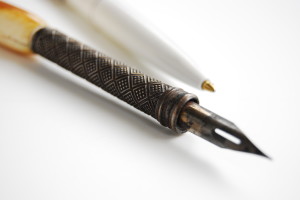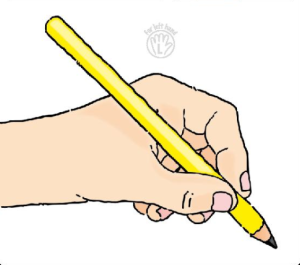Recently I saw an online article that had to do with instructing new authors on the ins and outs of the act of signing autographs.
My first reaction was to chuckle.
You need someone to teach you how to sign your name?
But then I stopped. Perhaps this author was onto something. A couple of incidents came to mind, the first of which had to do with my own autograph.
Atrocious Handwriting
In my earliest days of writing – when I was publishing magazine articles only – I began to be concerned about my handwriting. I was convinced that one day I would be an author of books. (That was books as in the plural sense!) But my handwriting was, in my opinion, atrocious. It was stilted, stiff, and unnatural. It had no life to it.
So I began to practice signing my name. And I practiced. And practiced. And practiced. My desire was to achieve a flowing effect – not stilted.
Today, many years later, I had almost forgotten that concern. But at that moment in time it was a big deal to me.

Newbie Author
 The second incident happened three or four years ago. I had been content editor and proofreader for a client who had written his very first book. Once he had the print edition of his book in his hand and was fanning through it, he asked me, “How do you sign your autograph? Whole name? First and last name only? And where? I don’t know how to do this. It’s all new to me.”
The second incident happened three or four years ago. I had been content editor and proofreader for a client who had written his very first book. Once he had the print edition of his book in his hand and was fanning through it, he asked me, “How do you sign your autograph? Whole name? First and last name only? And where? I don’t know how to do this. It’s all new to me.”
Something that one might think goes without saying, needed an answer. Needed an explanation.
I took the time to explain how I did it and told him to relax. That there were no right or wrong ways to sign your autograph.
Appreciate the Article
I mentally apologized to the author of the article for laughing, and then took the time to read it and to appreciate the information presented there.
The only element that was missing in the informative article would have been a note to those of us who are left handed. Do you  know how difficult it is to wrestle with a newly published book to hold it open with your left hand, while writing with your left hand. Argh! Not easy. (Those who are not of our sort would never even think of it.)
know how difficult it is to wrestle with a newly published book to hold it open with your left hand, while writing with your left hand. Argh! Not easy. (Those who are not of our sort would never even think of it.)
Be that as it may, I still love signing autographs. And I guess I always will. Such a fun part of being an author.
And kudos to the author of this article. You can catch it right here.
Oh and by the way, in the last paragraph of the article it does allude to a wrong way to sign autographs. Sorta. Kinda. You can read it to see what I mean.
PS: You will notice in all of the photos in the article, not one of those doing the signing is left-handed. More’s the pity.

 The Norma Jean Lutz Classic Collection now has three 3 available titles:
The Norma Jean Lutz Classic Collection now has three 3 available titles:
Flower in the Hills, Tiger Beetle at Kendallwood, and Rockin’ Into Romance
These clean teen reads, while authored in the past, offer timeless story lines that teens love.




 Actually, this was done in years past when an editor passed out a plot to several writers and asked each to write a short story from that one plot. This editor then went on to publish them in an anthology. While some of the stories were okay, most were quite dull. Why? What was missing? Passion. Passion was the missing ingredient.
Actually, this was done in years past when an editor passed out a plot to several writers and asked each to write a short story from that one plot. This editor then went on to publish them in an anthology. While some of the stories were okay, most were quite dull. Why? What was missing? Passion. Passion was the missing ingredient.
 No Stopping Allowed
No Stopping Allowed